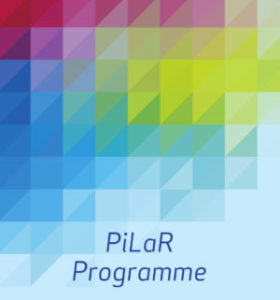This section focuses on the impact on health and social care professionals (HSCPs) who have been supporting people with eating disorders and their families through the pandemic.
Experience of HSCPs during Italy’s first lockdown (Colleluori 2021)
| Issues |
Examples |
| Changes due to pandemic |
- Modification of the therapeutic setting – use of Personal Protective Equipment (PPE), social distancing and cleaning procedures, needing people with eating disorders to engage in more self-monitoring and reorganising things such as for online meetings
|
| Challenges for HSCPs |
- Included increase fatigue, lack of group classes and ability to perform weight checks.
- Fear of infection as a stressor
- Increased frequency of communication from PWED. Some HSCPs felt they were unable to identify a strategy to counteract people’s discomforts/difficulties
|
| Support needs of people with eating disorders (PWEDs) |
- Mood changes, dysfunctional overthinking, anxiety, distance from loved ones, mourning or illness & increased eating disorder behaviours (binge eating, compensatory behaviours) linked to anxiety.
|
| Experiences of telehealth |
- For HSCPs, the positives of telehealth included no need for PPE, less fear of infection and fostering autonomy in people with eating disorders
- Limitations of telehealth were an elevated sense of therapeutic inefficacy, compromised therapeutic alliance and challenges around non-verbal communication.
|
A UK eating disorder service (Shaw 2021)
| Issues |
Examples |
| Eating disorder presentations |
- More acute admissions to general paediatric wards – PWED were too physically and mentally unwell to be at home
|
| Access to service |
- Virtual platforms – improved access, fewer constraints such as office space availability
- Greater flexibility, increased contacts from PWED
|
| Working from home |
- Staff working longer hours, managing childcare
- Missing support of colleagues and isolation
- Being left with strong feelings, difficult to switch off
|
| Positives from pandemic |
- Virtual multidisciplinary teams (MDTs), easier access to attend
- Those in recovery engaged well via video format
|
| Challenges |
- Phone contact viewed as least effective
- Difficulties translating FBT into a virtual format
- Staff wanted more knowledge of online supports
- Video consultations and high risk cases
- Virtual MDTs – hard to pick up cues
- IT issues
- Impact on team morale
- Harder for new team members to be inducted
- Harder to make decisions about risk and care plans, when working alone
|
References
Colleluori, G., Goria, I., Zillanti, C., Marucci, S., Ragione, L.D. (2021) Eating disorders during COVID-19 pandemic: the experience of Italian healthcare providers. Eating and Weight Disorders – Studies on Anorexia, Bulimia and Obesity, DOI: 10.1007/s40519-021-01116-5
Shaw, H., Robertson, S., Ranceva, N. (2021) What was the Impact of a Global Pandemic (COVID-19) Lockdown Period on Experiences within an Eating Disorder Service? A Service Evaluation of the Views of Patients, Parents/Carers and Staff. Journal of Eating Disorders, https://doi.org/10.21203/rs.3.rs-97813/v1



